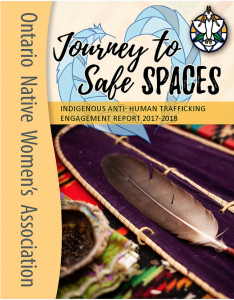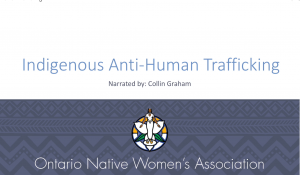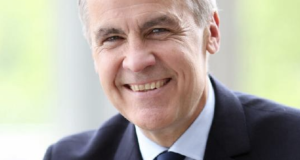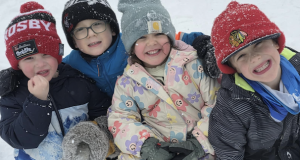July 30th is the United Nations World Day Against Trafficking in Persons. The Ontario Native Women’s Association (ONWA) wants to end human trafficking by breaking the silence. Learn about what human trafficking is and what it looks like in our community. Have the difficult conversations. Rise up. Break the silence.
Human trafficking is a global issue, but one that is also happening right now in our communities. There are misconceptions about human trafficking. It is not what you see in the movies and on television. It is not just the proverbial pimp on a corner scenario. “Behind every human trafficking story is a human story. The story of someone’s mother, sister, daughter, who is fighting against overwhelming odds to lead the safe prosperous life that each and every one of them deserves,” stated Dawn Lavell Harvard, ONWA President.
 Violence against Indigenous women and girls contributes to the normalization of violence and teaches young women to accept this as part of their lives. Indigenous women and girls, targeted by human traffickers, “comprise a disproportionate number of those sexually exploited in Canada through human trafficking” (ONWA, Journey to Safe Spaces Report). This needs to end.
Violence against Indigenous women and girls contributes to the normalization of violence and teaches young women to accept this as part of their lives. Indigenous women and girls, targeted by human traffickers, “comprise a disproportionate number of those sexually exploited in Canada through human trafficking” (ONWA, Journey to Safe Spaces Report). This needs to end.
Canadian institutionalized racism and societal judgment continues to put Indigenous women at a higher risk of human trafficking. Unique factors in settler society all lead back to the relationship created by colonialism and structures of power. Indigenous Knowledge Carrier Mona Hardy shares, “Parents lost the ability to nurture in the Residential Schools. How can you nurture when you have never been nurtured? We need to intervene and start caring for these people. Survivors of human trafficking need compassion, not judgement.”
We need more education, prevention and safety strategies created and implemented by survivors who are re-building identities. It is key that when a victim is identified, all barriers are removed to ensure they are survivors. Indigenous Anti-Human Trafficking Liaison and Survivor, Jessica Wilson shares, “Connecting back to our roots, and who we are, and where we came from is vital. I truly believe that I can turn all of my experiences of my time in ‘the Game’ into education, and support my survivor sisters through this ugly thing called human trafficking.”
On this United Nations World Day Against Trafficking in Persons let’s all take the time to learn more about human trafficking and what it looks like in our communities. Together, we can change the narrative by breaking the silence.
To learn more about human trafficking, visit https://www.onwa.ca/learning-
- L’école Sacré-Cœur (Chapleau) célèbre les Jeux olympiques - February 16, 2026
- L’école Sacré-Cœur (Chapleau) celebrates the Olympic Games - February 16, 2026
- Mixed Curling Standings – February 12 - February 16, 2026
 Wawa-news.com Local and Regional News
Wawa-news.com Local and Regional News


